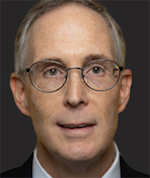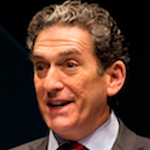 Tim O’Brien Tim O’Brien |
Words have been the tools of my trade for more than 34 years. First in newsrooms, and then for more than three decades in the public relations business.
Words matter. That’s what we tell ourselves, and it’s true. But what can they really accomplish? This question is rarely open for debate in the media or our communications businesses. But what’s gotten me out of bed every morning has been a never-ending quest to answer this question: What is it that truly shapes our opinions?
So, in 2018 I launched a podcast—called, fittingly, Shaping Opinion—that sought to learn more about the people, events and things that have shaped the way we think. While a podcast is hardly a scientific study, my purpose has been to look for the clues in conversations with people who have some unique knowledge of the topics we discussed. On the surface, some of those topics are broadly known, while others are bit more obscure.
For the most part, we haven’t centered our conversations on words or phrases or the cleverness of communications strategies or tactics. Rather, we’ve dug into stories that go behind the curtain. Stories that may reveal what it is about human nature that causes us to drop our guard, if only for a second, to allow our opinions to be modified, if only in the slightest ways.
The interviews
So far, I’ve interviewed more than 100 people from many corners of society, spending between 30 and 60 minutes discussing one subject per interview. That’s where we started; where we ended is a different story. I can’t say I figured out what shapes our opinions. But now that I’ve talked to more than 100 notables, I’m beginning to see a pattern.
The topics ranged from the Apollo 11 moon landing story to Columbine, the Berlin Wall to the breakup of the Beatles, Nashville’s Bluebird Café to how radicalization happens, the Battle of Little Bighorn to the history of the American flag, the New Coke fiasco to Frank Lloyd Wright’s Fallingwater, the writing of the Declaration of Independence to the story of the single woman in the Mad Men era who created America’s tradition of giving diamond rings when couples get engaged.
The people
Many of the people I’ve talked to have lived the history we discussed, so in that sense they’re influencers, though don’t look for most of them on Twitter. They’ve been too busy with their work to post much on social media.
There was Frances Arnold, a Nobel Prize laureate for her work in directed evolution; Dr. Micky Collins, the pioneering researcher on concussion treatment; Regis McKenna, the first marketing guru to partner with Steve Jobs while he was still working out of his parents’ garage; Liz Dolan, the woman who led Nike’s public relations when the company launched its iconic, “Just Do It.,” campaign; Dr. Cyril Wecht, a forensic pathologist who has worked on many high-profile cases, including the JFK assassination where his conclusions remain controversial; Captain Bill Toti, who told his personal story of what it was like inside the Pentagon on September 11, 2001; former FBI agent Bill Crowley, who gave his account from the same day, when he was charged with handling crisis communications on scene in the Pennsylvania field where Flight 93 crashed; Scott Fahlman, the inventor of the Internet emoticon; and Sheila Tate, who was press secretary to the First Lady and a de facto crisis manager in the White House on the day Ronald Reagan was shot.
The answers
These are powerful stories that influenced the way we think in some manner. So, that was the question in the back of my mind when I conducted every interview: what are the things that shape our opinions? My hope was that by simply hearing these stories we wouldn’t need to literally discuss the question, but through the sharing of these stories the answers would reveal themselves, and they did.
Based on everything I’ve learned through my own experience and through these interviews, I think I now know at least a little more.
If you want to shape opinion, there’s nothing more powerful than shared experience. This becomes more difficult in a society fragmented by personal and individualized media, where 20 people on a subway car can be listening to, reading or watching a different media source. It becomes more difficult in a polarized society where two sides of an issue lack so much empathy for the other that even when they experience the same development, it turns out to be two decidedly different experiences, depending on which side you sit.
But yet, shared experience remains the most powerful way to shape opinion. The whole world experienced Apollo 11 together, and sadly September 11th together. The glory and pride that Apollo 11 cast onto America in 1969 continues to fuel a certain amount of hope and optimism when we think of space exploration today. And of course, the scars of September 11th remain fresh even though an entire generation has been born after that day. Such is the power of shared experience.
It’s become clear to me that the introduction of new possibilities has a way of reshaping our own collective visions of a shared future. It’s difficult to remember or imagine what life was like before the personal computer, or a world where the female athlete wasn’t a staple in athletic competition. But we can easily trace the roots of both phenomena, which we did with Regis McKenna and his story of Apple in the earliest of days, and with Liz Dolan on her role in helping Nike embrace the larger idea of women and sport.
Shared experiences and new possibilities are just two factors that shape how we think. As I continue to speak with people who were part of history or whose lives involve the deep study of our society, my listeners and I will continue to learn more of the ways in which our attitudes are influenced.
The vessels of change are stories. Stories of those big events and that shared experience. Stories of new possibilities, told to us in new ways, on new platforms, but timeless in that they tap something inside of us. Something that tells us it’s okay to think differently, to change our minds, to see things in a new way.
If we want to shape someone’s opinion, we need to find a way to create a shared experience. We need to break down barriers and eliminate polarization, if just for a moment. We need to emphasize the new possibilities for each of us, and it has to be real. It has to be something that happens, not just something we say.
***
Tim O’Brien is founder of O’Brien Communications in Pittsburgh. He’s also the creator of the Shaping Opinion Podcast. He can be reached at 412/854-8845, [email protected], on Twitter, @OBrienPR.


 James Rubin has returned to the State Dept to counter disinformation and propagada from major actors, such as Russia, China, Iran, ISIS and al-Qaeda.
James Rubin has returned to the State Dept to counter disinformation and propagada from major actors, such as Russia, China, Iran, ISIS and al-Qaeda. The success of podcasts during the COVID-19 pandemic is proof that it’s time for marketers to get onboard this format.
The success of podcasts during the COVID-19 pandemic is proof that it’s time for marketers to get onboard this format. O’Dwyer’s is teaming up with the Washington Media Group, producer of weekly PR podcast The Flack Pack, on a podcast that will bring listeners public relations news and information from the perspective of O'Dwyer's reporters and contributors every Friday.
O’Dwyer’s is teaming up with the Washington Media Group, producer of weekly PR podcast The Flack Pack, on a podcast that will bring listeners public relations news and information from the perspective of O'Dwyer's reporters and contributors every Friday. The rising popularity of podcasting presents big opportunities to the public relations industry.
The rising popularity of podcasting presents big opportunities to the public relations industry.


 Have a comment? Send it to
Have a comment? Send it to 
No comments have been submitted for this story yet.